- Home
- James Phelan
Fox Hunt
Fox Hunt Read online
Fox Hunt
A Lachlan Fox Thriller
James Phelan
Copyright
Diversion Books
A Division of Diversion Publishing Corp.
443 Park Avenue South, Suite 1008
New York, NY 10016
www.DiversionBooks.com
Copyright © 2006 by James Phelan
All rights reserved, including the right to reproduce this book or portions thereof in any form whatsoever.
This is a work of fiction. Names, characters, places and incidents either are the product of the author’s imagination or are used fictitiously. Any resemblance to actual persons, living or dead, events or locales is entirely coincidental.
For more information, email [email protected]
First Diversion Books edition April 2014
ISBN: 978-1-62681-264-2
More from James Phelan
Fox Hunt
Patriot Act
Blood Oil
Liquid Gold
Red Ice
For Nicole
Sydney Evening Times
21 August 2005
AUSTRALIAN NAVY OFFICER DISCHARGED, CHARGES DROPPED
By P. Masson
Yesterday morning Lieutenant Lachlan C. Fox of the Royal Australian Navy was dismissed from service. The decorated veteran will never serve in the Australian Defence Force again. It took six months for a military tribunal to reach the guilty verdict.
Lt Fox was charged with seven military crimes, including ‘Leaving a post’ and ‘Imperilling the success of operations’. ‘Gross negligence in command’, the one charge that could have brought prison time for Lt Fox, was dismissed. The death of Leading Seaman John Birmingham under Lt Fox’s command has now been classified ‘Killed in Action’ by the Navy. LS Birmingham has been posthumously awarded the Commendation for Gallantry.
Lt Fox’s record was a mitigating factor. Graduating from the Defence Academy near the top of his class, Lt Fox transferred from Defence Intelligence to the hands-on Special Forces, where he led a Clearance Diver (CD) Team—Australia’s equivalent to the US Navy SEALs and Britain’s Special Boat Service. He saw active service in the liberation of East Timor in 2000, and later in Afghanistan and Iraq.
While on peacekeeping duty, Lt Fox led members of his CD team into Indonesian-controlled West Timor without authorisation. LS Birmingham was shot and killed in an exchange with Indonesian troops and militia while attempting to release captured East Timorese nationals from a makeshift detention camp.
Lt Fox is still undergoing rehabilitation due to serious injuries sustained during his unauthorised mission.
Outside military court in Canberra, Lt Fox was asked if he thought the findings of the tribunal were fair. He replied with a quote from Theodore Roosevelt: “‘The credit belongs to the man who is actually in the arena, whose face is marred by dust and sweat and blood…who, at the worst, if he fails, at least he fails while daring greatly.’”
Lt Fox added that “Today’s finding was a tribute to the good that John Birmingham did for his country and those in need. But it also shows what kind of bureaucratic world we live in—those East Timorese captives died because of the UN’s continued inactivity and there’s no inquiry into that. It just proves the old adage: war is never black and white.” Asked what he would do now, Lt Fox said: “Get as far away from here as possible and lead a quiet life.”
Prologue
WAHABAD DESERT CAVES
IRAN
“This is incredible,” Alissa Truscott muttered to herself for the hundredth time that day. With almost every bone perfectly in place, it was the most exciting archaeological find any of them had ever come across. Alissa knew that soon, when the secrecy of the expedition was lifted, their discovery would stun the world.
Just as incredible as the preserved skeleton was the surrounding earth, which contained fragments of assorted flora, suggesting the figure had been buried ceremoniously. The emphasis on the rituals of death at such an early prehistoric period was an amazing revelation, made even more so by crude stone pictographs cut into the tomb walls, hinting at the life once lived and a belief that it could be carried on after death.
“How are you going there, Alissa?” inquired a deep, resonating voice. Richard O’Brien was a diehard Irishman with a large soup-straining moustache that made up for the lack of hair on his head. He had barely managed to squeeze his girth through the crawl space into the tomb itself, a small antechamber to the main cave system. The process had resembled a walrus moving across the ground.
“Fine, thanks, Professor O’Brien,” replied Alissa in her southern US way, richly articulated unlike the stereotypical drawl. She had six years at Princeton to thank for that.
“Magnificent,” O’Brien said, taking in the fully exposed skeleton. “Shall we discuss our impending fame over lunch? The National Geographic photographer has arrived.”
Alissa wiped her thick cotton sleeve across her brow; it came away with a dirty smudge. “Remind me to freshen up if a camera gets pointed my way.” She offered O’Brien her hand and he took it in his, pulling her slender frame to her feet. “I’ll leave my workbook here and finish up after lunch.”
The other members of the dig were already in the mess tent, exchanging the data they had uncovered during the morning in their separate areas of the cave system. On the table were several varieties of preserved vegetables, some dried meat and fish, a large bowl of yellow dip and a mountain of fresh flat bread. A decanter of one of O’Brien’s reds was being passed around to add to the merry atmosphere and a small CD player was playing in one corner.
“Alissa, come sit down,” called Christian, a Danish student studying with her. He was holding an open sandwich in one of his long tanned hands; the other held a tin cup of wine. He scooted across the pine bench and made space for her shapely behind; it had become open knowledge that the two had begun an affair shortly after their arrival in Iran. The twenty-three-year-old Alissa would admit to no one, especially her new casual lover, that he was the first man she had slept with. She was a little disappointed that he was a bit clumsy but, admittedly, it wasn’t a bad way to spend the cold nights of the desert winter.
Towards the end of their lunch, O’Brien, who had ended up beside Alissa, turned to whisper to her while the others were busy laughing at a story the National Geographic photographer was telling.
“I forgot to mention it earlier—last night I was preparing our material for the photo shoot and I noticed some of the excavated material is missing.” The soft smell of wine was evident on O’Brien’s whispered words.
Alissa, fearing the worst, felt her stomach turn. “Not the organic material, or the tool fragments—”
O’Brien cut her off: “Shhh, not so loud.” He looked around to check everyone was still preoccupied. “Nothing that important, but puzzling nonetheless. It’s the rock trays, the mineral samples.”
Alissa looked from O’Brien to the others in the room. “The mineral samples? You’re sure someone’s not running tests on them?” She knew the answer though: O’Brien ran a very tight ship.
“They’d have to clear it with me and sign them out.” O’Brien had a distant look on his face, trying to grasp a reasoning that he was sure was out there somewhere.
“It wouldn’t surprise me if Orakov didn’t bide by your rules,” Alissa said. “He’s given me the creeps since day one.”
O’Brien cocked an eyebrow, considering the comment. “Before we figure out who, we have to ask ourselves why,” he said eventually.
The CD player stopped mid-track, hardly a rare occurrence due to its state. Christian, who had been humming along to the tune, got up to check and quickly saw it had no power at
all.
“That bloody Russian hasn’t fuelled the generator again!” he shouted, interrupting the photographer’s current anecdote.
The tent went silent and all nodded agreement that the generator had gone off.
“I’ll fix it myself,” Christian mumbled as he donned his parka and made for the door. He was only halfway to it when something came rolling through the doorway. Every eye in the tent stared uncomprehendingly at the small metal object as it tumbled across the floor.
An intense light and tremendous thunderclap rocked the tent and Alissa was thrown backwards onto the sand-covered floor. The last thing she saw through a smoky haze was the unshaven face of Dimitry Orakov staring down at her, an automatic pistol comfortably gripped in his hand.
GROZNY
CHECHNYA
The parade attracted a fanfare the like of which had never before been seen along the main streets of Grozny. State-funded vendors supplied hot foods to the crowd, while thousands of soldiers and police in dress uniform kept any citizens from flowing onto the sanctioned-off parade area. Every able body in the city had turned out despite the cold. Steam rose from the masses, giving physicality to their vocal jubilance. Independence had taken almost ten thousand military and civilian lives to achieve. Not only lives, but also years of hardship and misery for all concerned. Almost all.
The towering broad-shouldered man dressed in a long cashmere coat, Italian suit and shirt had not felt such pains. He had spent the past four years travelling between Grozny and a luxurious secret retreat, all the while maintaining true control over his semi-autonomous country through Russian-friendly rulers. Disposable men.
Now the time had come to take the reins himself.
President Sergei Ivanovich of the Republic of Chechnya stood on the decorated back of a flatbed army truck—against the advice of his personal security chief—resplendent in the glory of the moment. For too long he had stayed in the shadows. Now he was the centrepiece of the procession, a convoy of over two hundred military vehicles. No one would dare make an attempt on his life today. In death he would become a martyr, creating even bigger problems for Mother Russia. And the local bands of rebels knew how ruthless he could be— a botched assassination attempt and the capture of the perpetrators had proven that point.
The people loved the show. Not that they really knew much about Ivanovich, besides his stellar career trajectory in the KGB and subsequent position as special military aide to the old Politburo, the former USSR’s governing body. Being labelled by Putin as one of the most dangerous men in the world had guaranteed his prominence to the Chechen masses. They knew he looked like a leader, spoke like a leader.
Leading ran in the Ivanovich family. Ivanovich was old-school Soviet; his lineage had all been officers in the Soviet army and his younger brother was the current Vice-President of Azerbaijan, Chechnya’s neighbour on the Caspian Sea. Already that alliance had reaped mutual benefits: free trade, dual citizenship, a combined military force.
Ivanovich waved to the masses, a collective of exiles driven to the region over the past two centuries. He had made it clear that their lives and futures were entwined, destined for greatness: a nation which would be heard on the world stage.
A security officer walked over to the float and passed up a folded note, which Ivanovich opened and glanced at quickly. He smiled. He waved. He threw his fists into the air and shook his arms to display the emotions he felt.
Yes, he thought, yes! Now we will have real power!
High above, death loomed. Orbiting slowly and silently, unknown to almost all in the world.
PART ONE
1
The day was windy and bright. Clouds whispered through the sky and an aeroplane soared overhead. It was a time of peace and quiet on the beach; too early for most tourists but too late for the morning anglers. Only one figure disturbed the serenity, his large feet splashing in the warm tropical water of the Indian Ocean. For Lachlan Fox this was the most peaceful place on Earth, a sanctuary from the real world.
Every morning for the past few months this had been his ritual: a seven o’clock run along the beach for five kilometres and a swim back.
Fox paused at the end of his run and stretched out against the lone lifesaving tower that marked his distance. The paint flaked beneath his hands as he worked the tension out of his thighs. He couldn’t help but laugh as the tower moaned against his weight, his own body protesting against the force. Every movement of his legs was a chore, but thankfully getting easier with each day of rehab. The swimming was therapy.
Five minutes and several routines later, he walked into the water. Every few seconds one of the soft breakers that rolled through the mouth of the cove sprayed against him, the waves remaining upright in the offshore breeze. The wind carried the noises of a small town rising.
Fox could see movement atop the far headland, mainly kids and their dogs running from house to house in search of whatever entertainment was on offer inside, getting as much as they could out of their morning before school. Fox looked at his house in the distance and saw the specks of kids playing cricket in the street.
For a wonderful moment his mind was free of purpose. Just the water and sky and murmurs of life.
The lapping water against his waist brought him back. The bay went deep fast, and there was no standing still in the shallows as the gradient of loose sand lured swimmers out.
With the sea calling, Fox duck-dived under a fresh set of waves and broke the surface with a practised freestyle.
Almost back where he’d started, Fox climbed the weathered wooden stairs leading up the steep cliff face of the northern headland of Flying Fish Cove.
The island’s only port, and the township of Christmas Island, grew around the cove’s arc like a crust. Most beach-view houses were original settlements, dating from the island’s early days as a phosphate mine for the British Empire.
Fox’s house was a never-ending renovation job, already with six months’ worth of his own blood and sweat. Inside it looked like a bookstore, with barely a piece of wall in view. Stacks of The Islander, the local newspaper that Fox had created and edited each month, were piled like skyscrapers in one corner.
Fox entered, picking up the mail behind the door and flicking through it. The letters from the mainland he tossed on the unopened heap near the coffee table, the familiar handwriting of friends and family among the official correspondence.
He walked to the bathroom on autopilot and let the warm shower from rooftop solar pipes engulf him, the water removing both the sand and salt from his tanned skin. It had been a couple of days since he’d shaved and he lathered up whilst still in the shower, shaving with the speed and precision of someone who’d never used an electric razor.
Towelling off in front of the mirror, he decided to pick up the pace of his current exercise regime. Not that his six foot two, ninety-kilogram frame wasn’t toned—it was merely something else to set his mind to.
He brushed his wet hair out of his eyes and left the room and its mirror, no longer noticing the pink scars that carried so many memories.
At ten o’clock that evening, Fox emerged from a pub and started walking home. It was balmy and the wind had picked up strength; bits of foliage were flying about. Cyclone Catherine, which was meant to skirt the island the next day, was closer than predicted. He pulled his collar up around his neck to shield himself against the sea spray—a futile gesture. The fine mist soon soaked him through.
Walking through the town’s small botanical garden, Fox thought he heard a cry. He stopped to listen, but with the wind so strong it was impossible to pinpoint. Branches scraping metal roofs and loose items knocking about created a symphony of chaos. A few more paces around a bend and he came across three burly men, the type of merchant seamen who frequented the island’s casino. They were blocking his path, and that of two young women headed in the opposite direction. The pair clung to each other for support, fear in their faces
.
“Evening, boys,” Fox said as his danger sensors lit up.
“Fuck off—this ain’t your business,” replied one of the men in a deep, heavily accented Afrikaans voice. Two more figures emerged from the bushes to Fox’s right.
“How do you know what kind of business I’m in?” asked Fox, buying himself time to weigh up his opponents. “Why don’t you boys leave those girls alone—I’m sure you can find something you like at the casino.” The casino was a notorious spot for Thai prostitutes.
“Piss off, mate, last chance.” This came from a mountain of a man to Fox’s right.
Fox took a few more steps towards the five beefy men surrounding him. “You see,” he began in a low, calm voice, “there’s the problem.” His blue eyes came alive and gleamed before the threat in front of him.
The first two sailors looked at each other in bemusement.
“Last chance, boys … how about I spot you a couple hundred for a good time some place else?” Fox continued in the same crisp voice. His days in the navy had included being at the pointy end of enough conflicts to know what he could handle. This situation was borderline. Have to catch them off guard if it blows up …
Of the two men to Fox’s right, the largest, apparently the leader, gave a laugh. In a lightning move that none expected and barely saw, Fox knocked two of the thugs to the ground. They dropped with cries of agony, whilst in seemingly the same passage of motion Fox’s leg spun to his right with perfect timing. The resulting crunch was sickening. The man on the receiving end fell to the ground clutching his throat, barely able to breathe after the gracefully savage blow.

 10
10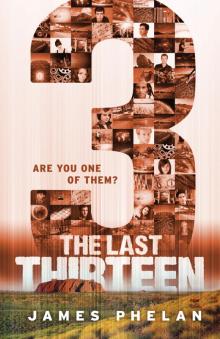 3
3 Survivor
Survivor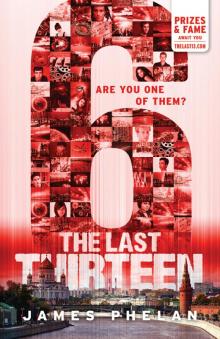 6
6 The Hunted
The Hunted Quarantine
Quarantine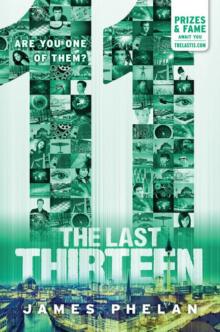 11
11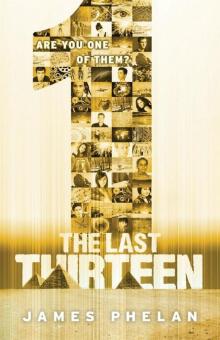 The Last Thirteen - 1
The Last Thirteen - 1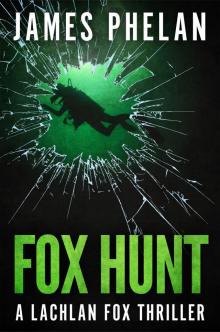 Fox Hunt
Fox Hunt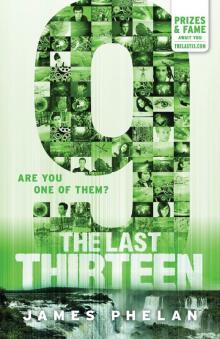 9
9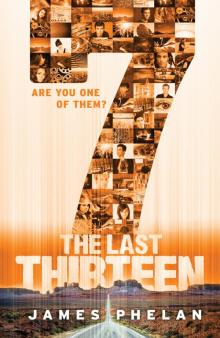 7
7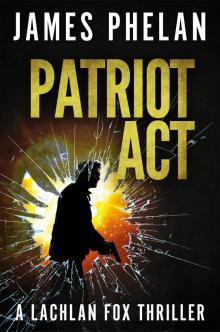 Patriot Act
Patriot Act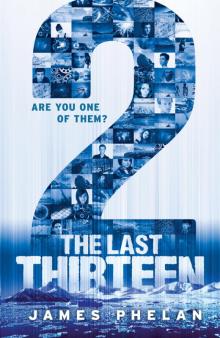 2
2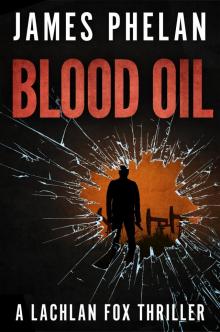 Blood Oil
Blood Oil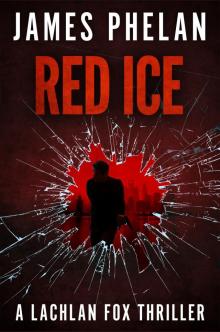 Red Ice
Red Ice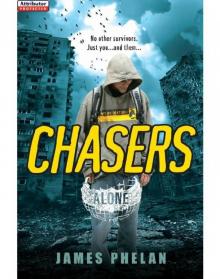 Chasers
Chasers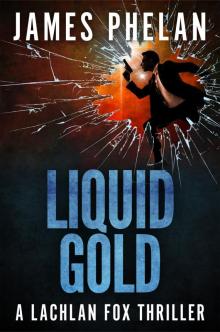 Liquid Gold
Liquid Gold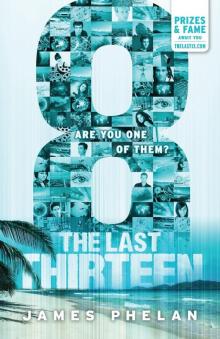 8
8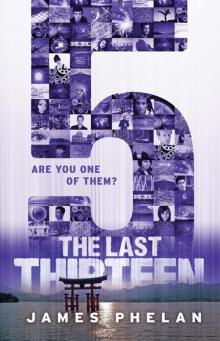 5
5 The Spy
The Spy Kill Switch
Kill Switch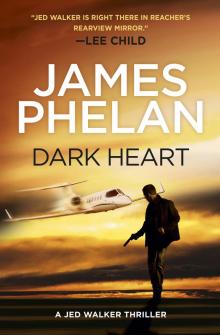 Dark Heart
Dark Heart